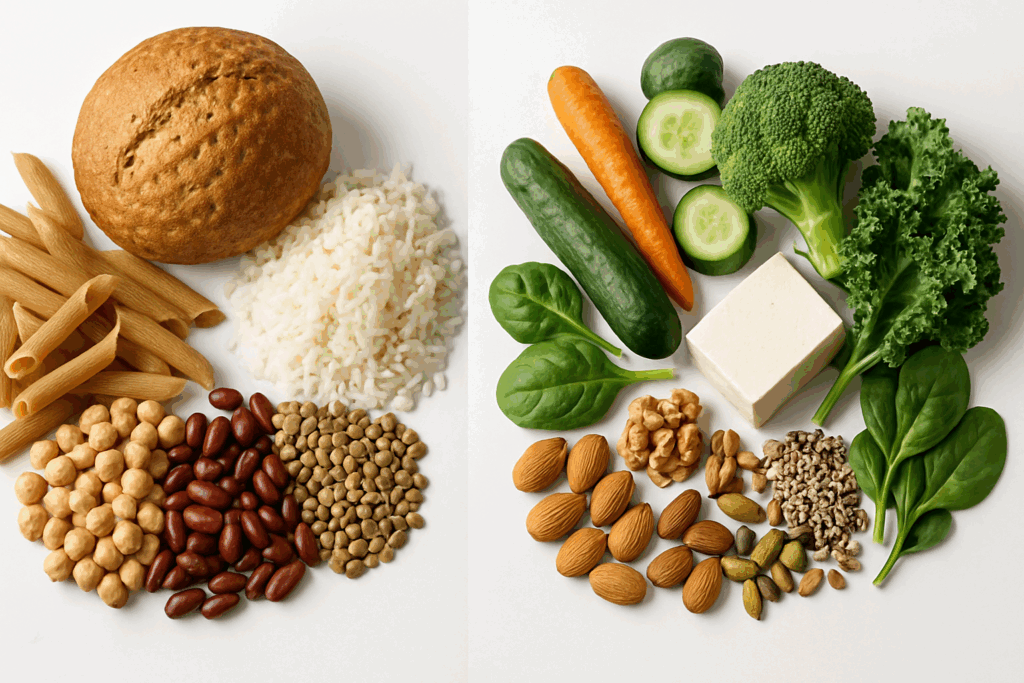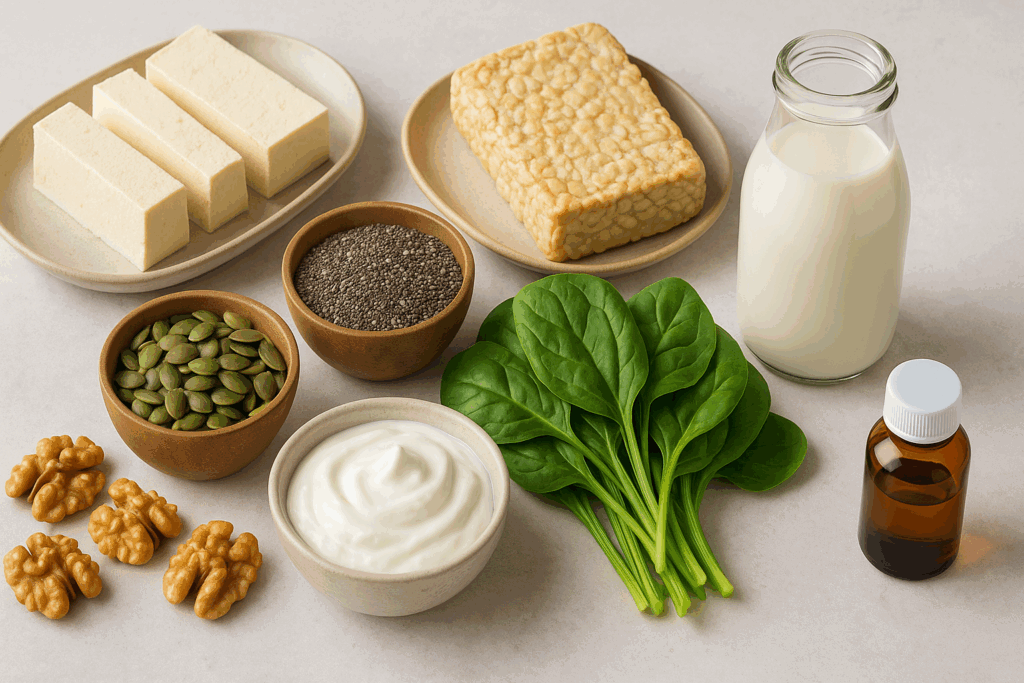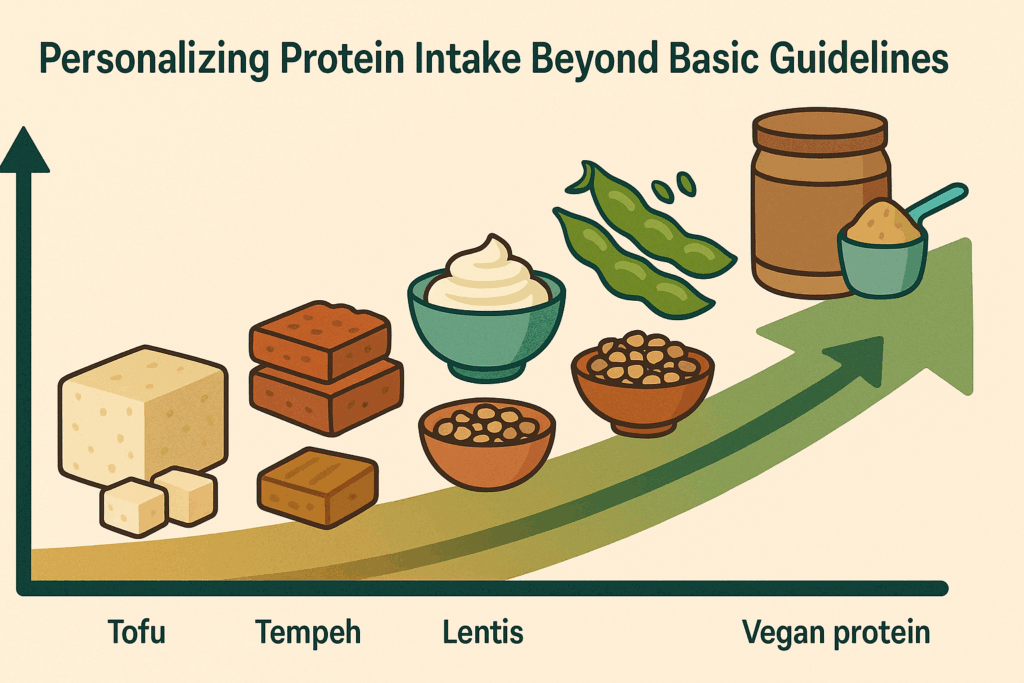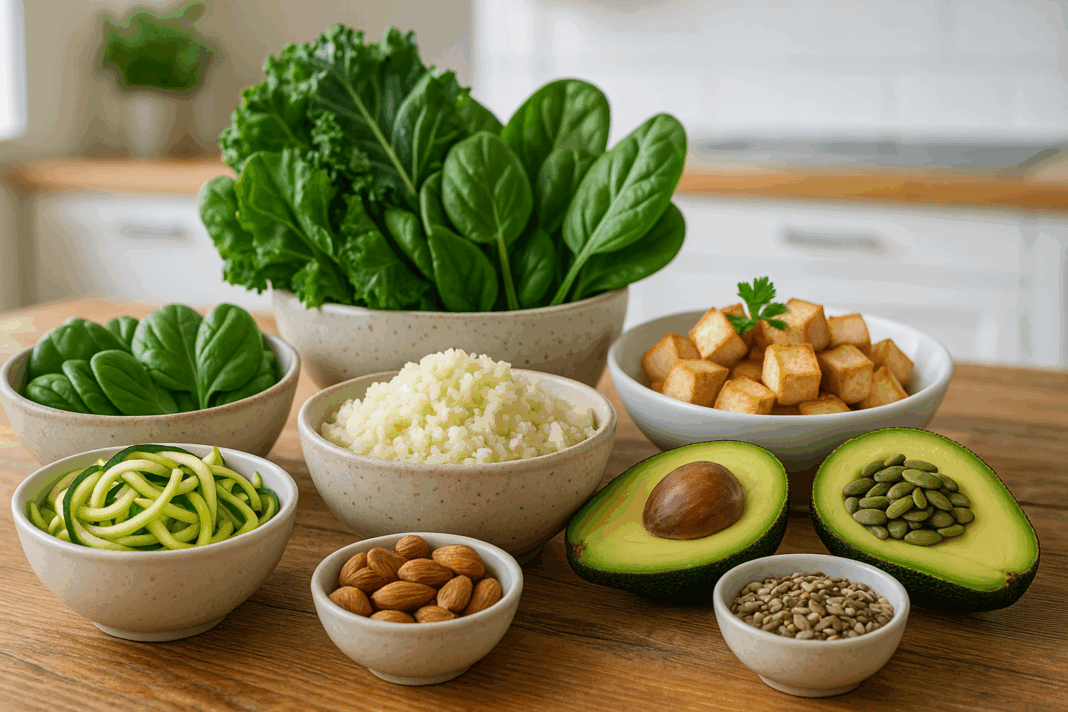Adopting a low carb vegetarian diet presents a unique opportunity to optimize your health through nutrient-dense, plant-based foods while strategically reducing carbohydrate intake. As more individuals seek ways to combine vegetarian principles with low-carb eating for weight management, blood sugar control, and sustained energy, it becomes vital to understand how to maintain proper nutrition without relying heavily on traditional vegetarian staples like bread, pasta, rice, and starchy legumes. This essential guide provides a comprehensive and evidence-based exploration of how to thrive on a low carb vegetarian diet, integrating core principles of nutritional science, practical dietary strategies, and long-term lifestyle recommendations for optimal vitality.
You may also like : The Ultimate Guide to Choosing a High Protein Diet Name That Fits Your Goals

Understanding the Foundations of a Low Carb Vegetarian Diet
At its core, a low carb vegetarian diet involves limiting intake of high-carbohydrate foods while exclusively consuming plant-based ingredients. Unlike ketogenic diets that often emphasize animal-based fats and proteins, this approach must creatively source essential nutrients from non-animal foods. The term “low carb” is not absolute but typically refers to diets providing anywhere from 20 to 130 grams of net carbohydrates per day. Net carbs are calculated by subtracting fiber and certain sugar alcohols from total carbohydrates, a particularly important distinction when evaluating fiber-rich vegetarian foods.
Vegetarians traditionally consume a diet rich in whole grains, legumes, fruits, and starchy vegetables. However, many of these items are carb-dense and can quickly exceed daily carbohydrate targets. Therefore, the low carb vegetarian must learn to prioritize low-glycemic plant foods, non-starchy vegetables, nuts, seeds, and vegetarian protein sources like tofu, tempeh, seitan, and low-carb dairy alternatives. Mastery of these dietary principles not only supports physical health but also provides the foundation for a sustainable and fulfilling eating pattern.
Why Choose a Low Carb Vegetarian Diet?
The motivations for choosing a low carb vegetarian diet are diverse and well-supported by research. One of the most cited reasons is the potential for improved metabolic health. Limiting carbohydrate intake can support more stable blood sugar levels, reduce insulin resistance, and aid in the management of type 2 diabetes. When coupled with the anti-inflammatory and antioxidant benefits of plant-based foods, the low carb vegetarian diet can offer enhanced protection against chronic disease.
Additionally, individuals often report increased satiety, improved energy, and better cognitive focus when reducing carbohydrate intake. The diet also aligns with environmentally conscious values, as it reduces dependence on animal agriculture while promoting the use of plant-based proteins and locally sourced vegetables. For those pursuing weight management goals, a low carb vegetarian diet may contribute to reduced appetite and more consistent fat loss due to balanced macronutrient ratios and enhanced dietary fiber intake.

Critical Nutrients to Monitor on a Veg Low Carb Diet
Although the low carb vegetarian diet offers significant health advantages, it also presents certain nutritional challenges that must be addressed proactively. Among the most important are protein, iron, vitamin B12, omega-3 fatty acids, and calcium.
Protein is a key concern, as many traditional vegetarian protein sources such as lentils, chickpeas, and quinoa are also high in carbohydrates. To meet protein requirements without excessive carbs, it is essential to focus on low-carb vegetarian protein options like tempeh, tofu, seitan, hemp seeds, chia seeds, Greek yogurt, and eggs (if ovo-vegetarian). Incorporating a variety of these foods ensures a broader spectrum of amino acids and supports muscle repair, hormone synthesis, and immune function.
Iron, particularly non-heme iron from plant sources, can be harder to absorb and often requires the inclusion of vitamin C-rich foods to enhance uptake. Spinach, pumpkin seeds, fortified cereals, and tofu are good choices, especially when paired with bell peppers or citrus fruits. Vitamin B12, found primarily in animal products, must be obtained through fortified foods or supplements for strict vegetarians. Omega-3 fatty acids, particularly EPA and DHA, are crucial for brain and heart health. While flaxseeds, chia seeds, and walnuts provide ALA (a precursor to EPA and DHA), many may benefit from algae-based omega-3 supplements to ensure adequate intake.
Calcium can be maintained with leafy greens, fortified plant milks, tofu, and almonds, but bioavailability varies. Therefore, consistent inclusion and potentially supplementation may be necessary. Addressing these critical nutrients ensures long-term sustainability and mitigates potential health risks associated with restrictive diets.
Building a Balanced Low Carb Vegetarian Meal Plan
Creating a meal plan that meets all macronutrient and micronutrient needs while honoring both low carb and vegetarian guidelines requires careful planning. A typical day might start with a high-protein breakfast such as a tofu scramble with spinach, mushrooms, and avocado, cooked in olive oil. Mid-morning snacks could include a handful of almonds or Greek yogurt with hemp seeds.
Lunch might consist of a kale and arugula salad topped with grilled tempeh, pumpkin seeds, olives, and a tahini-based dressing, providing ample fiber and healthy fats. A low-carb vegetable soup made with zucchini, cauliflower, and herbs could round out the meal. For dinner, a stir-fry of broccoli, bok choy, and seitan with coconut aminos served over riced cauliflower provides a satisfying and flavorful finish. Snacks such as cucumber slices with guacamole or roasted seaweed snacks help curb cravings and provide nutritional variety.
The key to long-term success on a veg low carb diet is variety and satiety. Including diverse colors, textures, and flavors ensures meals remain enjoyable and fulfilling. Rotating different vegetables and protein sources also increases nutrient diversity and reduces the risk of deficiencies.

Smart Substitutions to Reduce Carbs Without Sacrificing Satisfaction
One of the main challenges in transitioning to a low carb vegetarian diet is learning how to substitute traditional high-carb foods with healthier alternatives that support both satisfaction and blood sugar control. Fortunately, many innovations and whole food swaps make this easier than ever.
Cauliflower rice, zucchini noodles (zoodles), and spaghetti squash are excellent alternatives to grains and pasta. Almond flour, coconut flour, and flaxseed meal can replace wheat flour in baking or as breading for vegetables. Shirataki noodles, made from konjac root, offer a virtually carb-free noodle substitute. Even classic comfort foods like pizza and lasagna can be reimagined using almond flour crusts, eggplant slices, and dairy-free cheeses.
For vegetarians who enjoy dairy, full-fat Greek yogurt and hard cheeses provide high protein and fat with minimal carbs, while unsweetened almond or coconut milk offers a milk alternative without excess sugars. Sweet cravings can be addressed with monk fruit or stevia as natural, low glycemic sweeteners in desserts and beverages. These smart substitutions allow for familiar meals to remain part of one’s routine without compromising health goals.
The Science Behind Low Carb Benefits in a Vegetarian Context
Scientific literature increasingly supports the integration of lower carbohydrate intake with vegetarian principles, especially in relation to chronic disease management and metabolic health. Numerous studies have shown that reducing carbohydrate intake, particularly from refined and starchy sources, can help lower fasting blood glucose, improve hemoglobin A1c, and reduce triglycerides. These benefits are amplified when the diet is rich in fiber, antioxidants, and healthy fats—hallmarks of a well-constructed low carb vegetarian diet.
Furthermore, insulin sensitivity can improve with sustained carbohydrate reduction, especially when paired with weight loss and increased physical activity. Plant-based low carb diets have also demonstrated promise in reducing inflammation markers such as C-reactive protein and interleukin-6. The unique synergy of plant nutrients with a carbohydrate-conscious approach creates a powerful framework for preventative health and longevity.

Low Carb Vegetarian Diet Strategies for Athletes and Active Individuals
Athletes or those engaging in high-intensity exercise may worry that a veg low carb diet cannot provide sufficient energy or support muscle recovery. However, with thoughtful adjustments, active individuals can thrive while adhering to these dietary parameters. First, timing of carbohydrate intake becomes critical. Strategic consumption of moderate carbs before or after workouts, such as berries, a banana, or a small portion of quinoa, can replenish glycogen without disrupting overall macronutrient balance.
Additionally, increasing protein and fat intake can help fuel endurance and support anabolic repair. Nutrient-dense snacks like protein smoothies with almond milk, nut butter, and pea protein powder can offer convenient post-exercise recovery. Incorporating creatine (vegan-sourced) and branched-chain amino acids (BCAAs) may further enhance athletic performance and mitigate muscle soreness. It is crucial that athletes track their recovery, hydration, and nutrient intake closely while remaining adaptable based on performance feedback and training demands.
Hormonal Balance and the Low Carb Vegetarian Diet
Hormonal health is deeply influenced by dietary composition, especially in women. Estrogen, progesterone, insulin, and cortisol interact with macronutrients in complex ways. While high-carb diets can lead to blood sugar fluctuations and insulin resistance, extremely low-carb regimens may disrupt hormonal balance if not carefully managed.
For menstruating women, including cyclical variations in carbohydrate intake (carb cycling) during different phases of the menstrual cycle can help support energy, mood, and fertility. Higher carb days during the luteal phase (post-ovulation) may alleviate symptoms of PMS and support serotonin synthesis. Plant-based sources like berries, sweet potatoes (in moderation), and carrots can be used strategically without compromising the overall integrity of a low carb vegetarian plan.
In addition, healthy fat intake is essential for hormone synthesis. Omega-3 fatty acids, monounsaturated fats from avocados and olives, and saturated fats from coconut contribute to the production of sex hormones, adrenal function, and brain health. Flaxseeds, with their phytoestrogen content, may also help regulate estrogen levels, particularly during perimenopause.
Common Pitfalls and How to Avoid Them on a Veg Low Carb Diet
Despite its many benefits, the low carb vegetarian diet is not without pitfalls. A common issue is over-reliance on processed low-carb products such as packaged bars, meat analogs, or artificial sweeteners. While these can offer convenience, they often contain inflammatory oils, preservatives, and fillers that compromise nutritional quality. Prioritizing whole foods and preparing meals at home ensures greater control over ingredients and nutrient density.
Another challenge is the unintentional reduction of fiber. As grains and legumes are reduced, it becomes essential to include adequate fiber from non-starchy vegetables, seeds, and low-carb fruits like raspberries and avocados. Fiber supports digestive health, satiety, and the microbiome, all of which are foundational to long-term success.
Lastly, some individuals may inadvertently consume too few calories or neglect hydration when shifting to this dietary pattern. Low carb diets can initially reduce appetite, but sustained calorie deficits can impact metabolism, mood, and hormonal health. Monitoring food intake, hydration, and energy levels allows for timely adjustments and supports consistency.

Personalizing Protein Intake Beyond Basic Guidelines
While protein is a cornerstone of the low carb vegetarian diet, determining the right amount requires nuance. Standard recommendations suggest 0.8 grams of protein per kilogram of body weight, but active individuals, older adults, or those undergoing metabolic changes may benefit from higher intakes.
Rather than relying solely on one or two sources, building a rotation of plant-based proteins helps ensure amino acid diversity and minimizes the risk of food sensitivities. For example, combining tofu with tempeh, edamame, and pumpkin seeds over the course of several days ensures a broader nutrient spectrum. New innovations in fermented protein powders made from peas, rice, and hemp offer enhanced digestibility and amino acid absorption.
Understanding protein bioavailability and digestibility is key. While seitan offers a concentrated source of protein, its wheat origin may be unsuitable for those with gluten sensitivities. Tempeh, due to its fermentation process, offers improved digestibility and probiotic benefits. Enhancing meals with lysine-rich foods like legumes (used in moderation) or quinoa can help round out amino acid profiles.
Cognitive Benefits of Low Carb Vegetarianism
Emerging evidence suggests that dietary patterns can significantly impact cognitive function, mood stability, and neuroplasticity. A veg low carb diet, rich in antioxidants, B vitamins, and healthy fats, may provide neuroprotective effects and support mental clarity.
Low glycemic eating stabilizes blood glucose, which in turn reduces mental fog, anxiety, and irritability. Omega-3 fatty acids, particularly from algae-derived DHA, support the structural integrity of neuronal membranes and neurotransmitter function. B-complex vitamins, especially B6, B9 (folate), and B12, are critical for methylation pathways involved in mood regulation and cognitive resilience.
Additionally, polyphenols found in low carb plant foods like dark chocolate, green tea, turmeric, and blueberries offer anti-inflammatory benefits that extend to brain health. These compounds enhance cerebral blood flow, reduce oxidative stress, and may even support the growth of new neurons through brain-derived neurotrophic factor (BDNF).
Sustaining a Low Carb Vegetarian Diet Long-Term
Thriving on a low carb vegetarian diet requires more than short-term compliance; it demands a lifestyle approach rooted in education, preparation, and flexibility. Meal planning, batch cooking, and experimenting with new recipes help prevent dietary fatigue. Engaging with a supportive community, whether through online forums or local meetups, provides accountability and motivation.
It’s also important to routinely assess nutrient intake, either through dietary tracking apps or working with a registered dietitian. Lab work can reveal any developing deficiencies, enabling prompt supplementation or dietary correction. Mental flexibility is equally crucial. Occasional variations or higher-carb days should not be seen as failures but rather as opportunities to adapt based on context and individual needs.
Parents raising vegetarian children, pregnant individuals, or older adults considering this diet should seek tailored guidance to ensure specific life-stage requirements are met. Overall, long-term success hinges on making the diet enjoyable, accessible, and responsive to one’s evolving health and lifestyle.
Biochemical Individuality and Nutrigenomics
Nutritional needs are not one-size-fits-all. Biochemical individuality, shaped by genetics, lifestyle, microbiome, and environment, profoundly affects how one responds to a low carb vegetarian diet. Nutrigenomics, the study of how food interacts with genes, offers a promising frontier for personalizing nutrition.
For instance, genetic variants in MTHFR, COMT, or APOE genes influence folate metabolism, dopamine clearance, and lipid transport, respectively. A person with the MTHFR mutation may require methylated forms of folate, while those with APOE4 may need to moderate saturated fat intake. Nutrigenomic testing, combined with functional lab analysis, can help tailor macronutrient ratios, supplementation, and food choices to individual biochemistry.
Practical application of nutrigenomics ensures that a low carb vegetarian diet is not only effective but also optimally suited to each person’s unique physiological blueprint. This approach embodies the future of preventative, precision-based nutrition.
Managing Cravings and Emotional Eating
Transitioning to a veg low carb diet can unearth underlying emotional relationships with food. Cravings for bread, sugar, or processed snacks may stem from dopamine imbalances, stress, or habit patterns rather than nutritional deficiency. Addressing these root causes is essential for long-term success.
Mindful eating practices, such as chewing slowly, eating without distraction, and tuning into hunger cues, help recalibrate the body’s natural satiety mechanisms. Techniques like journaling, meditation, or breathwork can reduce stress-related cravings and foster a healthier emotional connection to food.
When cravings do arise, having healthy alternatives available—such as a piece of dark chocolate, coconut fat bombs, or chia pudding—can provide comfort without derailing progress. Over time, taste preferences adapt, and high-sugar foods often lose their appeal.

Integrating Functional Foods for Maximum Benefit
Functional foods are those that offer health benefits beyond basic nutrition, often through bioactive compounds. For the low carb vegetarian, incorporating functional foods strategically can provide metabolic support, immune enhancement, and hormonal regulation.
Turmeric, with its active compound curcumin, has potent anti-inflammatory and antioxidant properties. When paired with black pepper (which contains piperine), its bioavailability increases significantly. Maca root, an adaptogen from Peru, supports adrenal health and may boost energy and libido. Ashwagandha, another adaptogen, modulates cortisol and enhances resilience to stress.
Incorporating these foods as part of daily meals or teas allows for gentle, cumulative support of physiological systems. Unlike pharmaceuticals, functional foods work synergistically with the body and often provide subtle, yet profound, health shifts over time.
The Future of Low Carb Vegetarian Eating: Trends and Innovations
As public interest in plant-based eating and carbohydrate-conscious living grows, food innovation is accelerating to support those adopting a veg low carb diet. High-protein, low-carb snacks like lupini beans, sunflower seed crackers, and fermented nut-based cheeses are increasingly available. Culinary trends also point toward expanded use of ancient grains like millet or sorghum in moderation, as well as adaptogenic herbs and spices to enhance metabolism and hormonal balance.
Beyond food products, digital tools and apps now cater specifically to vegetarian keto or low carb plant-based dieters, offering meal plans, macronutrient calculators, and community support. Scientific advancements continue to refine our understanding of how personalized nutrition, gut microbiota, and metabolic flexibility can guide individualized low carb approaches.
Moreover, regenerative agriculture and plant-based sustainability movements emphasize the importance of soil health, biodiversity, and ethical sourcing—further aligning this diet with broader ecological and social values. As knowledge expands and access improves, the low carb vegetarian diet will likely become more mainstream, with increasing medical endorsement and global relevance.
Exploring Spiritual and Philosophical Dimensions of Diet
For many, the low carb vegetarian lifestyle extends beyond physical health into realms of spiritual alignment, ethical consciousness, and personal growth. Mindful eating fosters presence, gratitude, and connection with nature. It encourages slower, more intentional living and can serve as a catalyst for broader lifestyle changes.
Practices like Ayurveda and Traditional Chinese Medicine (TCM) provide frameworks for understanding food energetics, seasonal eating, and body constitution. In these paradigms, food is not just fuel but a form of medicine that influences emotions, temperament, and spiritual balance.
Adopting a low carb vegetarian diet through this lens invites ongoing reflection and adaptation. Rather than rigid adherence, it becomes a dynamic relationship guided by intuition, wisdom, and respect for the interconnectedness of all life.
Frequently Asked Questions: Thriving on a Low Carb Vegetarian Diet
1. How Can I Support Muscle Growth on a Low Carb Vegetarian Diet?
Building and maintaining muscle on a low carb vegetarian diet requires intentional protein sourcing and nutrient timing. In addition to standard vegetarian proteins like tempeh, tofu, and seitan, consider incorporating advanced plant-based protein powders that combine multiple sources for complete amino acid profiles. Post-workout nutrition is critical; consuming 20 to 30 grams of protein within 30 minutes after exercise can enhance muscle repair and hypertrophy. Creatine monohydrate, often overlooked in vegetarian diets, is a non-carb supplement proven to improve strength, especially when sourced from vegan-certified providers. Integrating omega-3s from algae oil also supports muscle recovery and joint health, enhancing athletic outcomes.
2. What Are the Best Strategies for Overcoming Plateaus on a Veg Low Carb Diet?
Hitting a plateau on a veg low carb diet can be frustrating, but it often signals the need for strategic adjustments. Cycling carbohydrate intake, such as implementing a targeted carb refeed once or twice a week, may reignite metabolic flexibility and support thyroid function. Periodically recalculating caloric needs based on changing activity levels or weight loss progress ensures your intake remains aligned with your goals. Hormonal imbalances, particularly in women, can also contribute to stalls; tracking menstrual cycles and incorporating more fats or adaptogens like maca may support hormonal equilibrium. Lastly, expanding food variety helps prevent micronutrient imbalances that could be hindering metabolic efficiency.
3. How Can I Make the Low Carb Vegetarian Diet Work in Social Settings?
Navigating social situations on a low carb vegetarian diet requires a balance of preparation and communication. Bringing a compliant dish to gatherings ensures there’s at least one option that fits your dietary needs while introducing others to new flavors. In restaurants, scanning menus beforehand and calling ahead to ask about ingredient swaps can prevent uncomfortable surprises. Choosing cuisines with naturally compatible dishes, such as Mediterranean or Indian, offers more flexible low carb vegetarian options. Using polite but confident language when explaining your preferences helps normalize your dietary choices without alienating others. Remember, fostering understanding rather than rigid defense often leads to greater support and curiosity from those around you.
4. Can I Practice Intermittent Fasting on a Veg Low Carb Diet Safely?
Yes, intermittent fasting can be safely combined with a veg low carb diet, but it requires thoughtful execution. Start with a 12:12 fasting window and gradually extend to 16:8 or longer only when energy levels remain stable. Breaking your fast with nutrient-dense, high-protein meals ensures you’re replenishing muscle glycogen and avoiding post-fast fatigue. Those new to fasting may find electrolyte imbalances an issue; adding magnesium, potassium, and sea salt can mitigate common symptoms like headaches or dizziness. Women, especially those with adrenal issues, should monitor hormonal feedback closely and may benefit from more flexible fasting schedules to maintain menstrual regularity.
5. Are There Budget-Friendly Ways to Follow a Low Carb Vegetarian Diet?
Following a low carb vegetarian diet doesn’t have to be expensive with smart planning and pantry staples. Buying nuts and seeds in bulk, choosing frozen vegetables, and preparing large batches of meals at home reduces weekly costs. Eggs (for ovo-vegetarians), cabbage, radishes, and tempeh are all affordable, low carb staples with high nutritional value. Learning to ferment your own vegetables or sprout seeds at home adds both variety and probiotics without the premium price tags. Finally, focusing on whole, unprocessed ingredients often costs less long term than relying on specialty products or packaged meat substitutes.
6. How Do I Handle Emotional Eating on a Veg Low Carb Diet?
Emotional eating is a complex behavioral pattern that often persists regardless of dietary framework, including the veg low carb diet. Building mindfulness practices around eating—such as journaling cravings or practicing gratitude before meals—can help you identify emotional triggers versus genuine hunger. Including foods rich in tryptophan (like pumpkin seeds and tofu) and magnesium (such as leafy greens and avocado) can naturally support mood stabilization through serotonin regulation. Regular movement, even gentle walking or yoga, supports emotional processing and energy flow, especially during stressful periods. Engaging in non-food-based reward systems, like reading, nature walks, or creative hobbies, builds a toolbox for comfort that doesn’t rely on food.
7. How Can I Optimize My Cognitive Function While on This Diet?
Cognitive clarity is a reported benefit of the low carb vegetarian diet, but optimization requires strategic nutrient inclusion. Choline, an essential nutrient for memory and learning, is often low in vegetarian diets and should be sourced from eggs, sunflower lecithin, or supplements. Acetyl-L-carnitine and phosphatidylserine are additional nootropic compounds that support mental stamina, especially during periods of reduced carbohydrate intake. Polyphenol-rich foods like matcha, rosemary, and dark chocolate enhance blood flow to the brain and combat oxidative stress. Finally, maintaining blood sugar stability through evenly spaced meals with healthy fats helps avoid the mental fog associated with glucose dips.
8. What Role Does Sleep Play in the Effectiveness of a Low Carb Vegetarian Diet?
Sleep quality profoundly affects how well your body adapts to and benefits from a low carb vegetarian diet. Inadequate sleep impairs insulin sensitivity, increases cravings for refined carbs, and disrupts appetite-regulating hormones like leptin and ghrelin. To support restful sleep, consider including magnesium-rich foods such as pumpkin seeds and spinach in your evening meal. Avoid eating too close to bedtime, especially high-protein meals, as this may delay melatonin production. Additionally, reducing blue light exposure and creating a calming nighttime ritual enhances sleep architecture, which in turn improves energy, metabolism, and overall adherence to dietary goals.
9. How Do I Sustain a Low Carb Vegetarian Diet During Travel?
Maintaining a veg low carb diet while traveling requires preparation but is entirely feasible with a bit of foresight. Packing portable staples such as protein powders, nut butters, roasted seeds, and low-carb crackers ensures access to nutrition when options are limited. Researching grocery stores and vegetarian-friendly restaurants near your destination allows you to plan meals and avoid last-minute compromises. Opt for accommodations with kitchens or mini-fridges so you can prepare simple meals with local produce and ingredients. Staying hydrated is essential, especially when flying or crossing time zones, to reduce cravings and digestive issues. A flexible mindset also helps you adapt to new culinary environments while staying true to your core dietary goals.
10. What Innovations Are Shaping the Future of the Low Carb Vegetarian Diet?
The landscape of the low carb vegetarian diet is rapidly evolving due to innovations in food technology, sustainable agriculture, and personalized nutrition. Plant-based egg alternatives, mycoprotein-based meat analogs, and lab-cultured dairy are expanding protein options for vegetarians while keeping carb counts low. Advances in personalized nutrition, including microbiome analysis and DNA testing, allow individuals to tailor the veg low carb diet more precisely to their unique biochemistry. Regenerative agriculture is also bringing attention to how food is grown, linking soil health to nutrient density in low carb vegetables. As public awareness of carb quality, food ethics, and metabolic health continues to grow, the low carb vegetarian diet is positioned to become a key model for resilient, conscious eating in the future.
Conclusion : Embracing the Power of a Low Carb Vegetarian Diet for Lifelong Health
In conclusion, the low carb vegetarian diet is a powerful, adaptable, and science-backed approach to enhancing health, sustaining energy, and promoting nutritional integrity without relying on animal products or high-glycemic foods. Through mindful selection of nutrient-dense vegetables, plant-based proteins, and healthy fats, individuals can construct a satisfying and biologically supportive eating pattern that meets their unique needs.
This lifestyle offers numerous benefits, from improved blood sugar control and reduced inflammation to enhanced mental clarity and cardiovascular health. While it requires intentional planning and an openness to dietary experimentation, the long-term rewards are well worth the effort. With the right strategies, substitutions, and support systems in place, anyone can thrive on a veg low carb diet—enjoying not only lasting nutrition and energy but also a deeper connection to food, health, and purpose.





